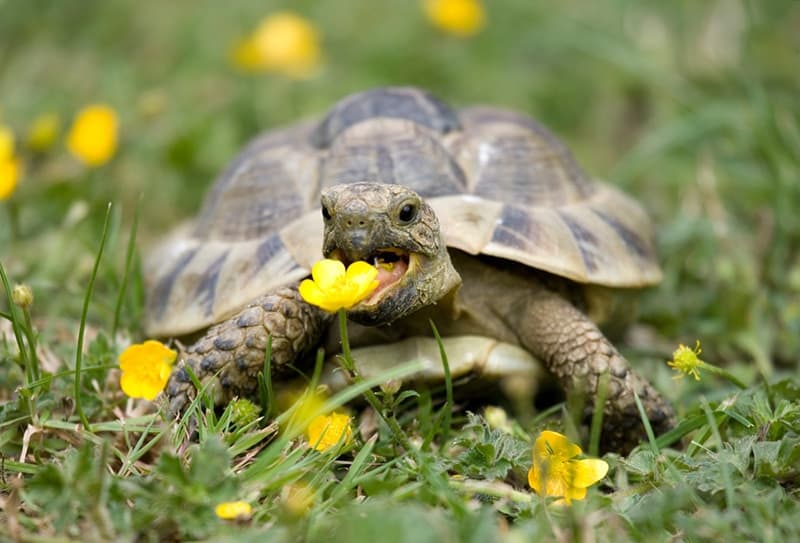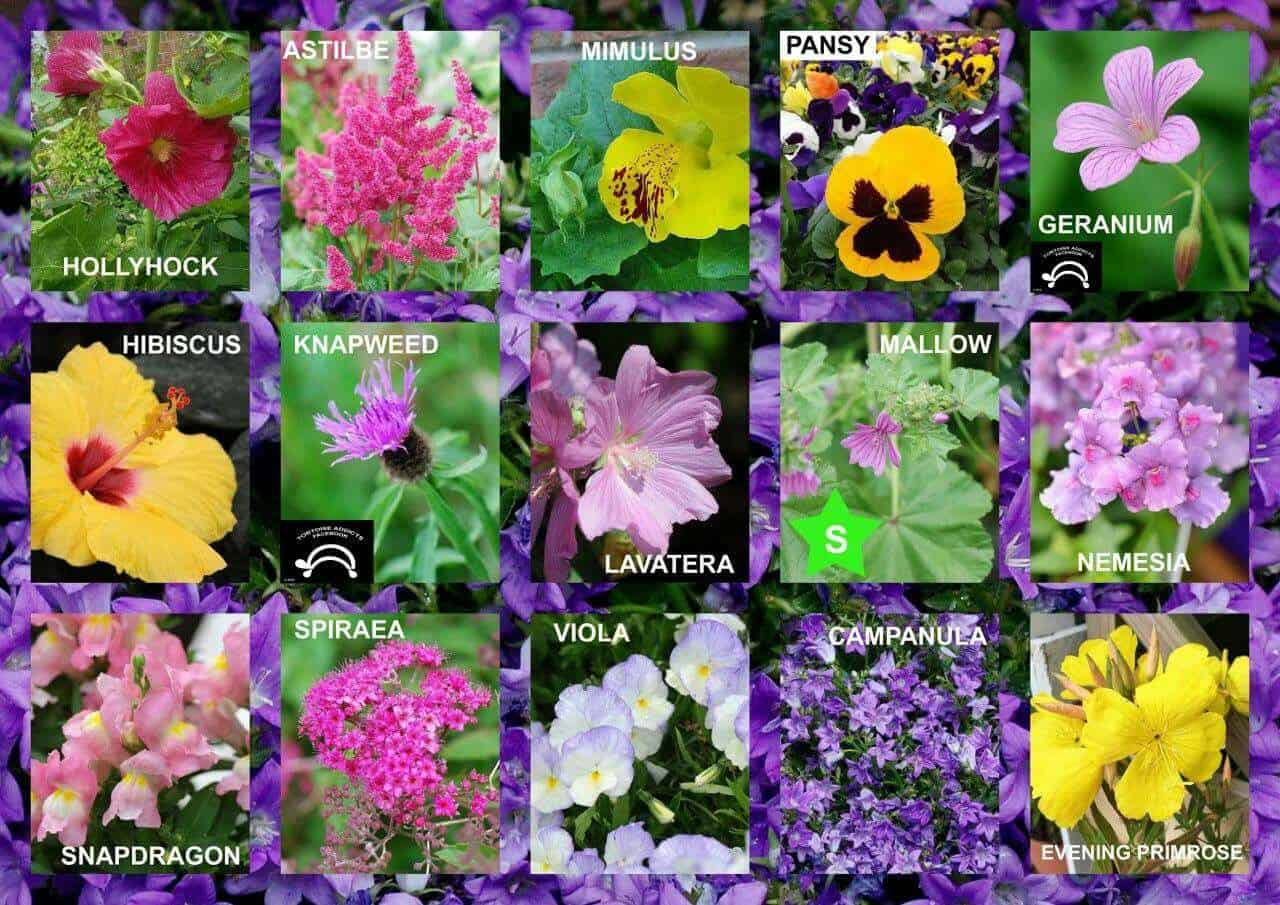What flowers can tortoises eat? Tortoises can eat a variety of flowers, including hibiscus, dandelions, roses, nasturtiums, and pansies, as long as they are pesticide-free and safe for consumption.
Bloom and Chew: Discovering the Benefits of Flower Consumption for Tortoises
Tortoises are known for their slow and steady nature, but when it comes to their diet, they require a balanced and nutritious meal. While many people may think of tortoises as strictly herbivores, there is one food group that often gets overlooked – flowers. Yes, you read that right. Flowers can actually provide numerous benefits for tortoises and enhance their overall health and well-being.
Understanding the Nutritional Needs of Tortoises
Before we delve into the benefits of flower consumption for tortoises, it’s important to understand their nutritional needs. Tortoises are herbivores, meaning they primarily eat plants. Their diet should consist of a variety of leafy greens, vegetables, fruits, and in some cases, flowers
. A balanced diet is crucial for tortoises as it provides them with the necessary vitamins, minerals, and fiber they need to thrive.
The Role of Flowers in a Tortoise’s Diet
Flowers can be a great addition to a tortoise’s diet for several reasons. Firstly, they provide a source of hydration. Many flowers contain high water content, which can help keep tortoises hydrated, especially during hot weather or in arid environments.
Secondly, flowers offer a variety of nutrients that can contribute to a tortoise’s overall health. They are rich in vitamins such as vitamin C and vitamin A, as well as minerals like calcium and potassium.
The Benefits of Flower Consumption for Tortoises
The benefits of flower consumption for tortoises are numerous. Firstly, flowers can help improve a tortoise’s digestive health. The fiber found in flowers can aid in digestion and prevent constipation. Additionally, the high water content in flowers can help keep the digestive system functioning properly.
Furthermore, flowers can provide essential vitamins and minerals that are necessary for a tortoise’s overall health. For example, vitamin C is important for the immune system and can help prevent illnesses. Vitamin A is crucial for eye health and can contribute to good vision in tortoises. Calcium is essential for strong bones and shell development.
Types of Flowers that are Safe for Tortoises to Eat
While flowers can be beneficial for tortoises, it’s important to note that not all flowers are safe for them to consume. Some flowers may be toxic or harmful to tortoises, so it’s crucial to do your research and ensure that the flowers you offer are safe. Safe flowers for tortoises include hibiscus, dandelion, rose petals, pansies, and marigolds. These flowers are not only safe but also provide a variety of nutrients.
| Flower | Notes |
|---|---|
| Hibiscus | Rich in nutrients, enjoyed by many tortoises. |
| Dandelions | Nutritious and commonly consumed by tortoises. |
| Roses | Can be fed in moderation; avoid thorns. |
| Nasturtiums | Safe and attractive option for tortoises. |
| Pansies | Non-toxic and suitable for tortoises. |
On the other hand, there are certain flowers that should be avoided as they can be toxic to tortoises. These include lilies, tulips, azaleas, and oleanders. It’s always best to err on the side of caution and consult with a veterinarian or reptile specialist if you’re unsure about the safety of a particular flower.
How to Incorporate Flowers into a Tortoise’s Diet
When incorporating flowers into a tortoise’s diet, it’s important to do so gradually and in moderation. Start by introducing small amounts of flowers and observe how your tortoise reacts. If there are no adverse effects, you can gradually increase the amount over time.
It’s also important to provide a variety of flowers to ensure a balanced diet. Different flowers offer different nutrients, so offering a mix of safe flowers will help ensure that your tortoise is getting a wide range of vitamins and minerals.
The Importance of Variety in a Tortoise’s Diet
Variety is key when it comes to a tortoise’s diet. Just like humans, tortoises benefit from a diverse range of foods. By offering a variety of flowers, leafy greens, vegetables, and fruits, you can ensure that your tortoise is getting all the necessary nutrients it needs to thrive.
Potential Risks and Precautions to Consider
While flowers can be beneficial for tortoises, there are some potential risks and precautions to consider. Firstly, as mentioned earlier, not all flowers are safe for tortoises to consume. It’s important to research and ensure that the flowers you offer are safe and non-toxic.
Secondly, it’s crucial to avoid flowers that have been treated with pesticides or other chemicals. These can be harmful to tortoises and may cause illness or even death. Always opt for organic or pesticide-free flowers when feeding them to your tortoise.
How to Monitor a Tortoise’s Flower Consumption
Monitoring your tortoise’s flower consumption is important to ensure they are getting the right amount of nutrients without overfeeding. Keep an eye on their weight and overall health. If you notice any changes in their appetite, behavior, or appearance, it may be a sign that something is off.
It’s also important to be aware of signs of overfeeding or underfeeding. Overfeeding can lead to obesity and other health issues, while underfeeding can result in malnutrition. Consult with a veterinarian or reptile specialist if you have any concerns about your tortoise’s flower consumption.
Other Ways to Enhance a Tortoise’s Diet
While flowers can provide numerous benefits for tortoises, they should not be the sole focus of their diet. It’s important to offer a balanced and varied diet that includes a mix of leafy greens, vegetables, fruits, and other safe foods.
Leafy greens such as kale, collard greens, and dandelion greens are excellent sources of vitamins and minerals for tortoises. Vegetables like carrots, bell peppers, and squash can also be included in their diet. Fruits such as strawberries, melons, and apples can be offered as occasional treats.
The Benefits of Bloom and Chew for Your Tortoise
In conclusion, flower consumption can provide numerous benefits for tortoises. Flowers offer hydration, essential vitamins, and minerals that contribute to a tortoise’s overall health and well-being. However, it’s important to ensure that the flowers offered are safe and non-toxic.
Incorporating flowers into a tortoise’s diet should be done gradually and in moderation. It’s also crucial to provide a varied diet that includes a mix of leafy greens, vegetables, fruits, and other safe foods. By providing a balanced diet, you can ensure that your tortoise is getting all the necessary nutrients it needs to thrive. So go ahead and let your tortoise enjoy the beauty and benefits of flowers!
Originally posted 2024-02-08 09:29:22.



